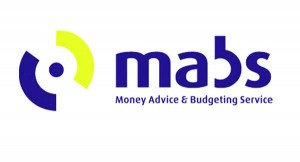
You indulged yourself and your family a little too much over the Christmas and New Year period and now, with the dreaded bills arriving, you realise you need to cut down on your spending before you find yourself in serious trouble.
A headache on New Year’s morning can be cured with a tablet or two but the financial hangover can be a much harder pill to swallow.I popped into MABS (Money Advice and Budgeting Service) to speak with co-ordinator Lorraine Waters on how best to tackle a crisis many of us encounter at this time of year. The first advice she gives me is “Control your money; don’t let your money control you”.
If you find yourself burdened with various debts, look at which of these you should prioritise as some of your debtors may be easier to put off than others. Take care of necessities like the mortgage, or rent, and the electricity bill first.
Understanding the distinction between necessity and luxury is key to cutting down the amount of money leaving your account on a regular basis. Ask yourself if you’re spending money on goods and services you really need or, rather, really want?
Sit down with a recent bank statement and examine your standing orders and direct debits. Are you paying for any services you could live without? If so, cancel that subscription, or look at ways to reduce the amount you pay for it. You may not need to cancel your cable TV but do you really need all those extra movies and sports channels which are raising the cost?
Shopping around for the best deal can be of great benefit. Do you have a landline, internet connection and cable TV subscription? If you’re paying three different providers it’s most likely going to work out a lot more expensive than if you received all three from the one source. In these times, when everyone owns a mobile phone, do you really need that landline? If the answer is yes, take a look at how you use it compared to your mobile and ensure you’re getting the best value from both. If possible, look for a package that will combine the two at a discount.
Lorraine gives me a ‘spending diary’, a handy tool you can pick up in any branch of MABS. Whenever you spend money, no matter how large or small the amount, note it down in the diary. We’ve all found ourselves asking the question “Where did my money disappear to?” With the diary, you can look back each day and see exactly where it “disappeared” to. You’ll be amazed at how much you may be spending on little items like coffee, for example. Cutting out that extra cup each day could leave you with as much as €50 per month you previously didn’t have. Calculating your weekly and monthly spending on such minor luxuries can be a real eye-opener.
At this time of year, keeping your home warm can result in a terrifying shock when the heating bill arrives. Managing your heating system can help lessen this shock. If possible, use a timer and use it sensibly. If you’re at work all day and the heating’s on at home you’re simply wasting your money. If you have to turn on the heat manually, remember to turn it off. To see the toll heating can take on power consumption, take a look at your meter, first with the heating off. Turn it on and you’ll notice a visible difference in the speed your meter moves at. Also, be aware of the cost of an electricity unit and remember appliances left on standby are still consuming power.
If you implement these tips, you should see your bills become that bit more manageable.
For more information, visit www.mabs.ie or give them a call on 0761 072000



